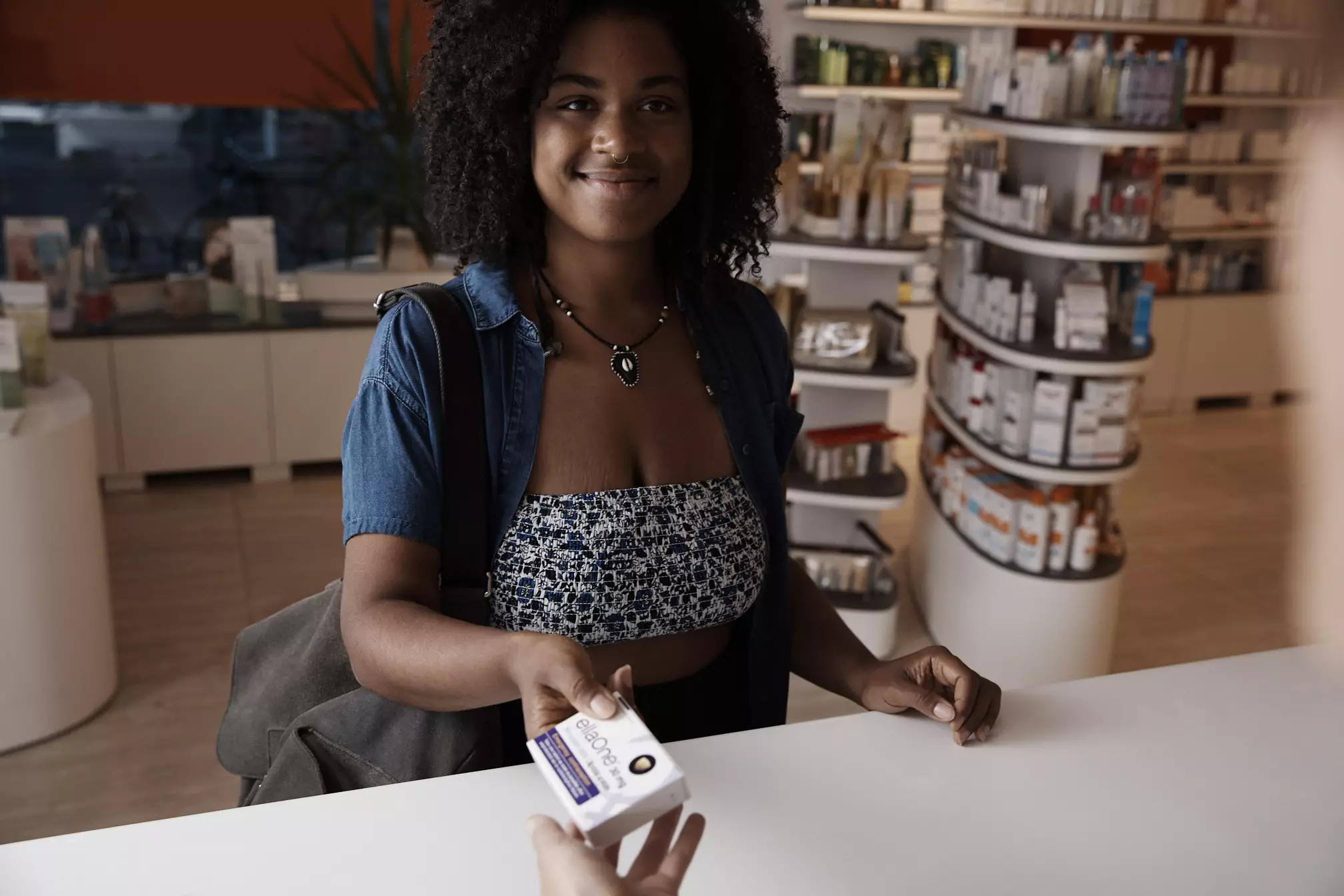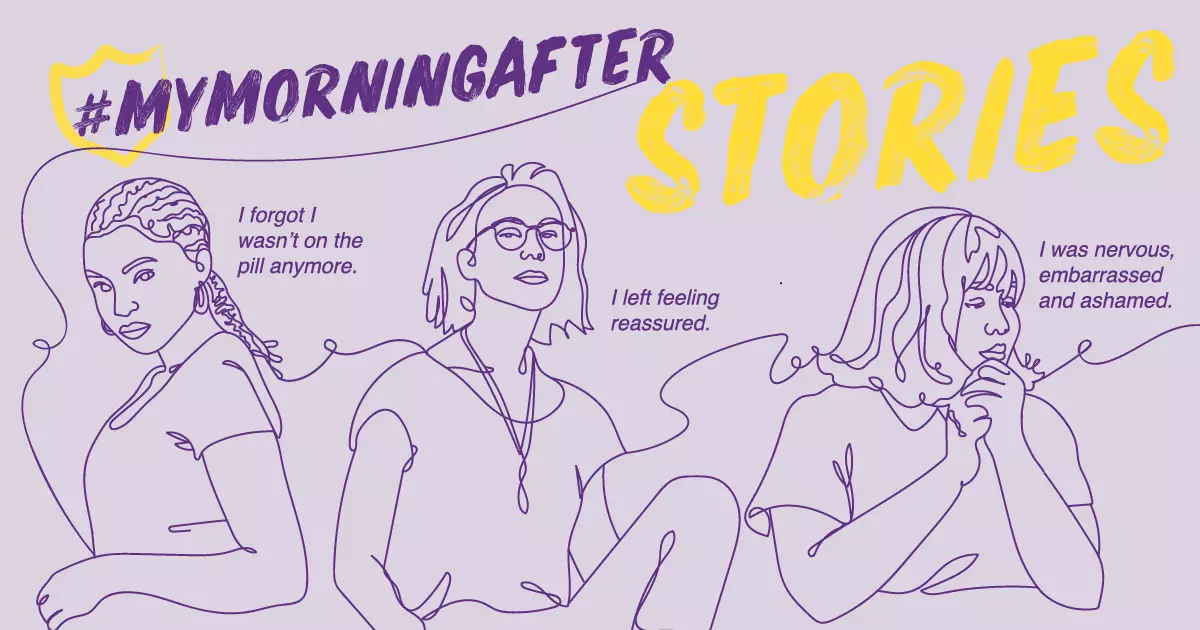
If you've ever felt embarrassed or ashamed about taking the morning after pill, you're not alone. But it's less about you than you think.
The stigma surrounding the morning after pill is a hangover from a time when women's lives were expected to play out in a specific way. Women were not openly considered to have, or want, sex lives over and above procreative sex with a husband, and anything related to how a woman's body works was a matter for her and her (usually male) doctor.
The subject of women's bodies and their sex lives was something to be kept private and kept out of polite conversation. Anything that didn't fit with the accepted narrative of how women should look, feel and behave had shame attached to it.

When the regular contraceptive pill was introduced in 1961 it was revolutionary: it allowed a woman control over her body and the choice to have children on her own terms. The morning after pill - first licensed for use in the UK in 1984 - added to that freedom for a woman to have choices about what her future could look like.
Advert
But that doesn't mean the idea was embraced with open arms. Women have a long history of being judged for wanting autonomy over their own bodies, and the morning after pill is a great example of how a woman can make an informed decision about her own body. Bad press the morning after pill receives ranges from concerns it 'encourages unprotected sex' and 'promiscuity' and that it is 'an early form of abortion' - despite the fact this is categorically untrue. One of the most common misconceptions about the morning after pill is that it causes a 'mini abortion'. What the morning after pill does is help prevent pregnancy by delaying ovulation (the monthly-ish release of an egg from your ovaries). This is similar to some regular contraceptive pills, which also prevent ovulation. The morning after pill cannot remove a fertilised egg from the uterine wall, therefore no 'mini abortion' takes place.
Like the subject of periods, body hair and anything else to do with the female body that doesn't fit the outdated image of what a woman "should" be, there is still misplaced shame attached to the morning after pill. It's one of those things you are meant to keep as a shameful secret.

Only one in ten women feel confident when purchasing the morning after pill, according to recent research by ellaOne[1]. It's a sad state of affairs that women feel embarrassed to buy a product that has been developed specifically for them.
Advert
Emergency contraception as we know it started in 1966 at Yale School of Medicine - two scientists reported the successful use of an oral estrogen dose as a post-coital contraceptive. Eventually the first prescription-only combined estrogen-progestin product was approved in the UK in January 1984. Fast forward to now, some improved science and ellaOne is the most effective* morning after pill on the market.
To prove how stigma plays a part in women accessing the morning after pill in the UK, a survey in June 2018 found one in eight women surveyed would go to another town to get the morning after pill to avoid bumping into anyone they know, while another 26 per cent would wait until nobody else was in the pharmacy before asking for emergency contraception[2].

In Poland, the government is actively making it harder to access the morning after pill. Women and girls 15 and over in Poland now need to make an appointment with a doctor - making it more difficult for those living in isolated areas to access. While women in other countries may face a flat refusal - in Malta there have been reports of pharmacists 'conscientiously objecting' to selling emergency contraceptive pill, even though they stock it.
Advert
Taking the decision to use emergency contraception in the event of unprotected sex or regular contraception failure is an informed decision if you're looking to avoid an unplanned pregnancy, not something that is indicative of who you are or a symptom that you're irresponsible or promiscuous. Let's shed this old-fashioned shame about the morning after pill and leave it where it belongs: in the past.
The morning after pill has revolutionised women's lives. Rather than feeling the pressure to have a child that isn't planned or wanted, the morning after pill enables women to make an important decision: to have children on their own terms. An instance of unprotected sex or your regular contraception failing doesn't have to mean that your life takes a completely different course.

We want to break the taboo by talking about it, so let's be open and honest about our experiences of taking the morning after pill. Women having autonomy over their reproductive rights is not something to be ashamed of.
Advert
Talk with friends and loved ones - speak openly about it and help send the message to men and women alike, that there should be no stigma when it comes to emergency contraception.
Share your story on morningafter.co.uk - an open forum to share your lived experience of taking emergency contraception.

ellaOne® 30mg film-coated tablet contains ulipristal acetate and is indicated for emergency contraception within 120 hours (5 days) of unprotected sex or contraceptive failure. Always read the instructions on the package leaflet carefully. *Verify the 'most effective morning after pill' claim at ellaone.co.uk/verify.
Advert
[1] HRA Pharma, Data on File: Festival Consumer Research with 750 women aged 18-35, August 2018.
[2] HRA Pharma, Data on File: Consumer Censuswide (Golin) research with 2020 heterosexual 17-35 year olds, June 2018.
Featured Image Credit: